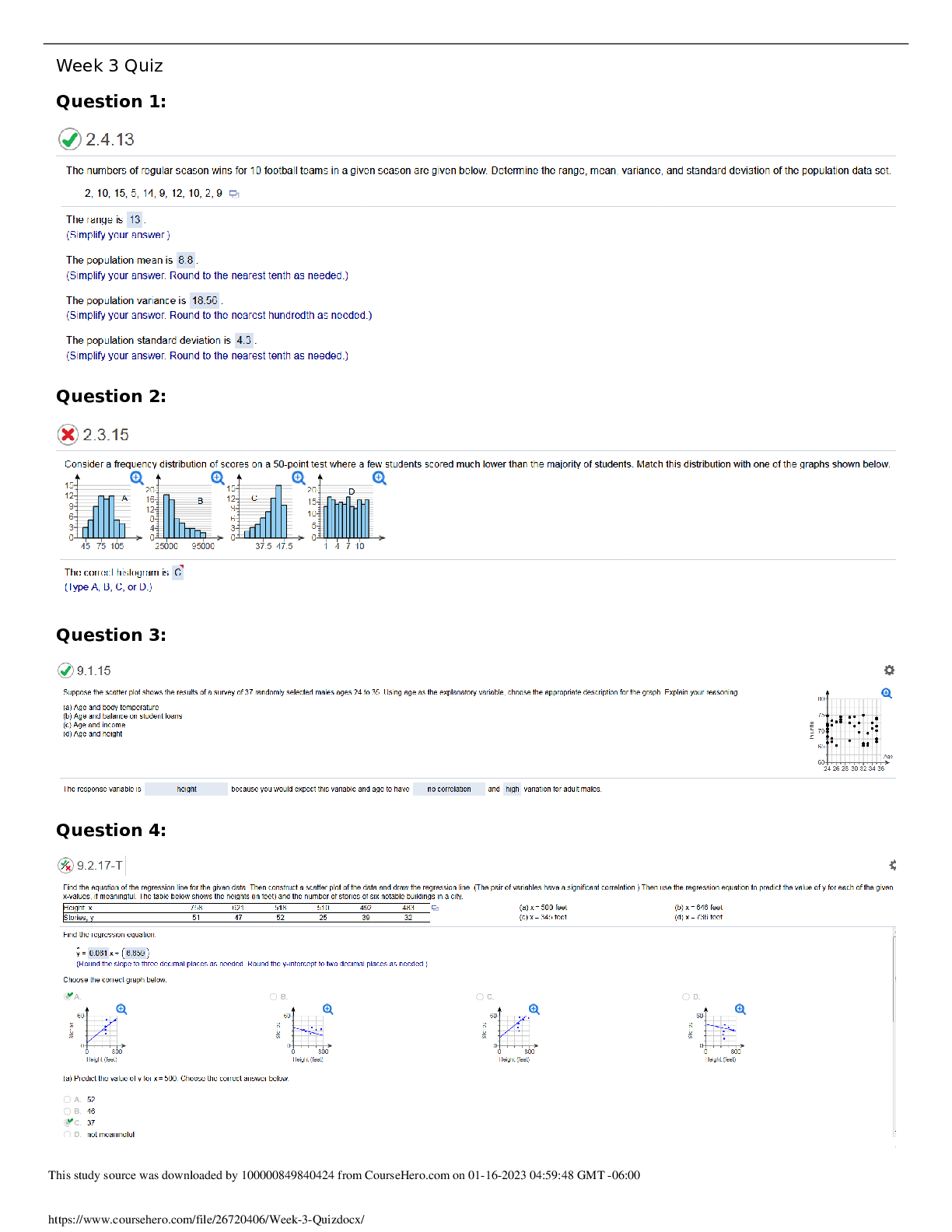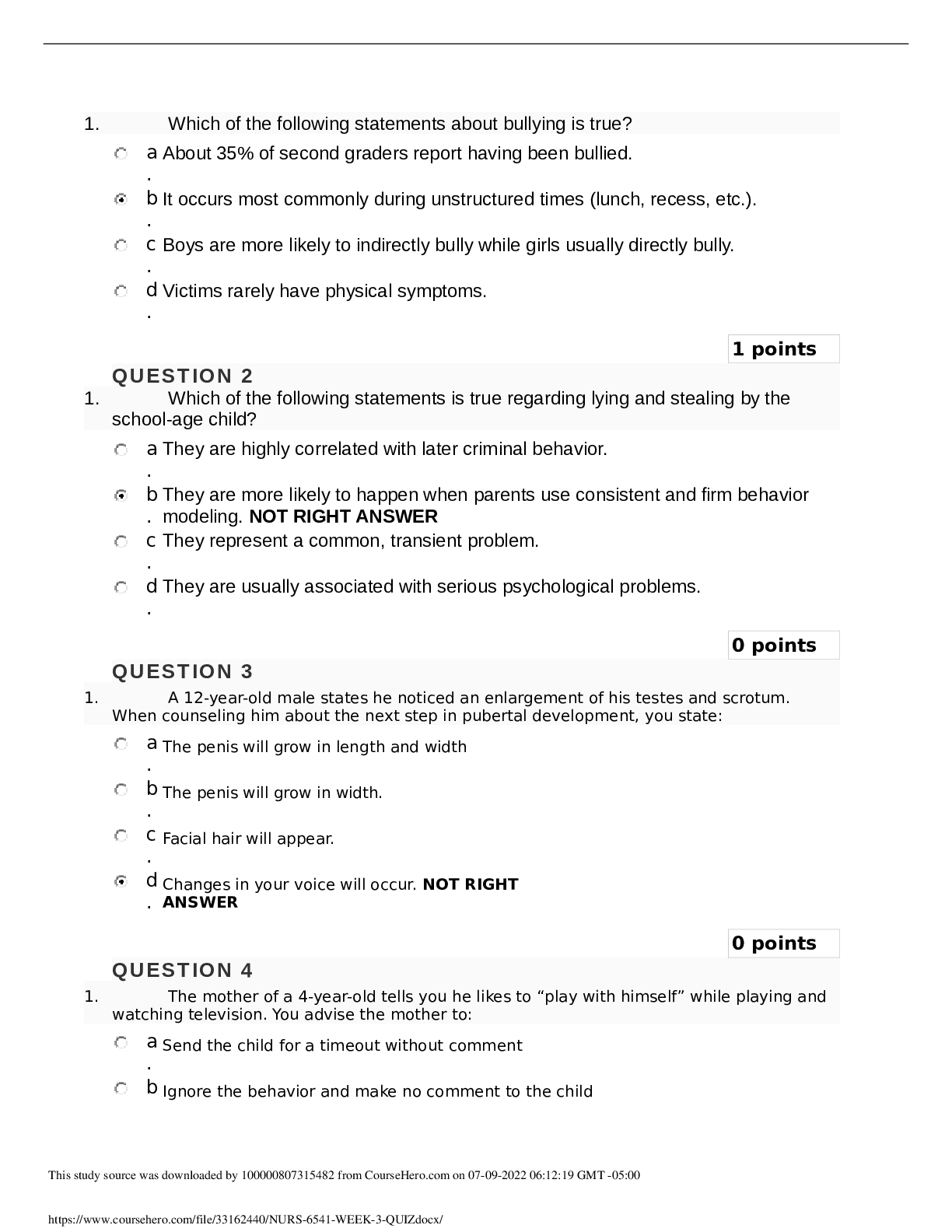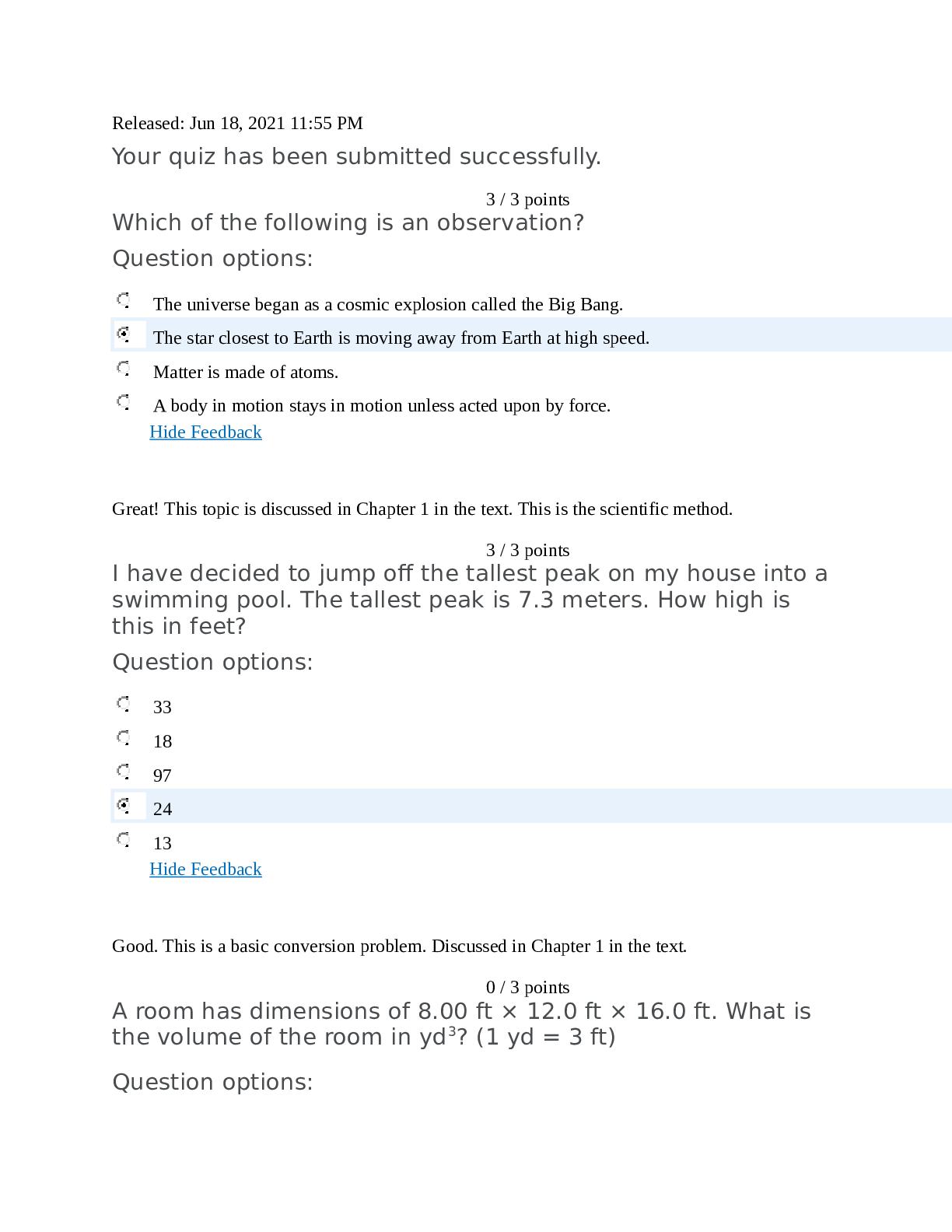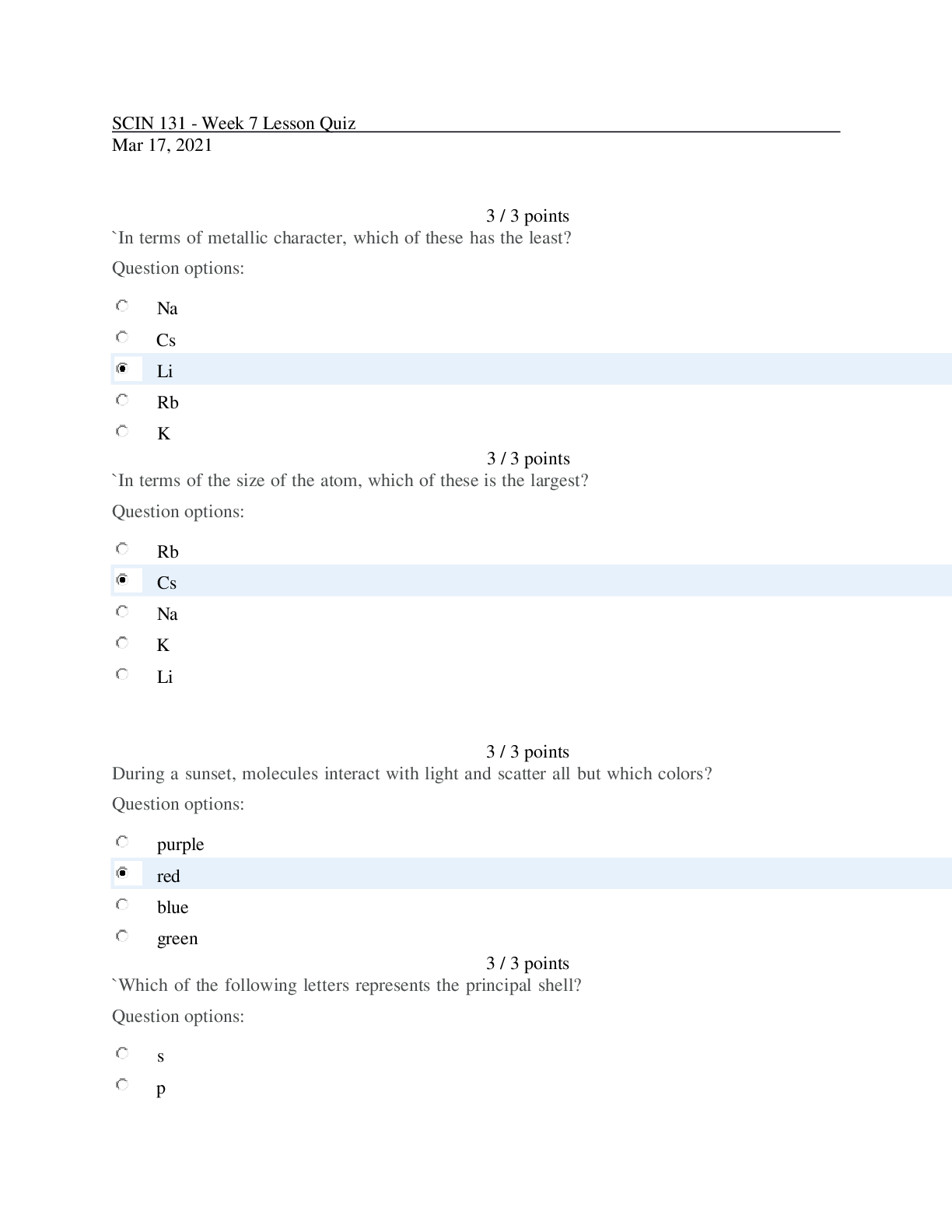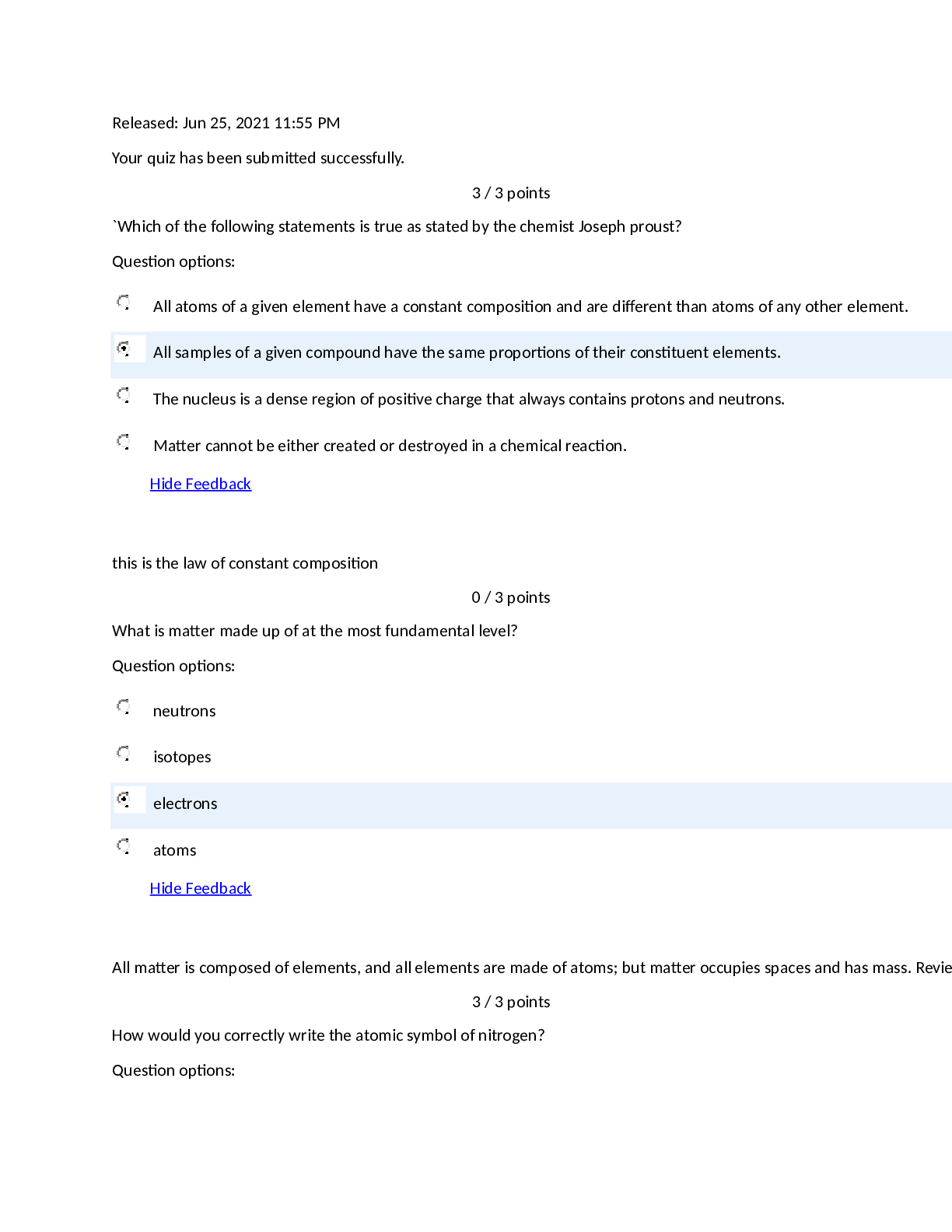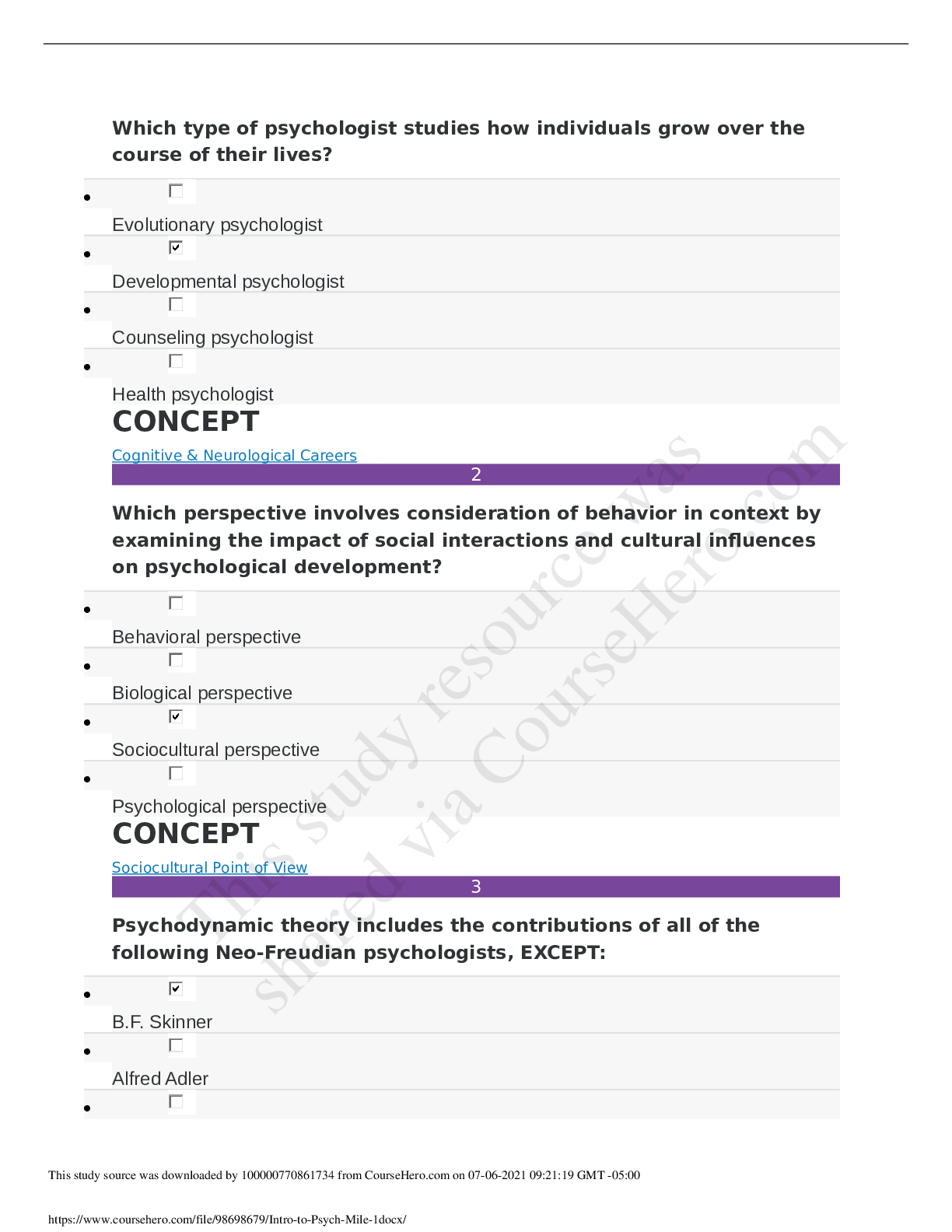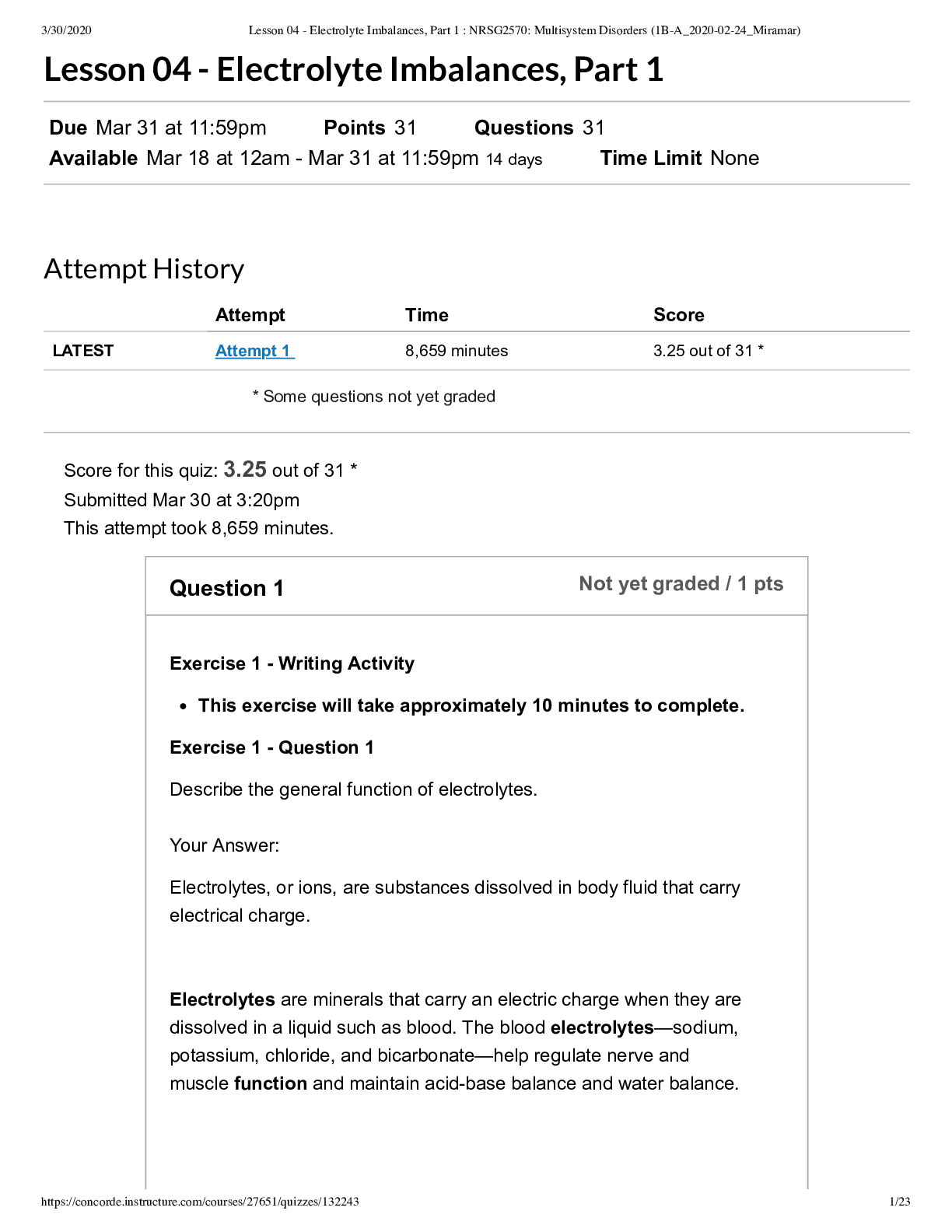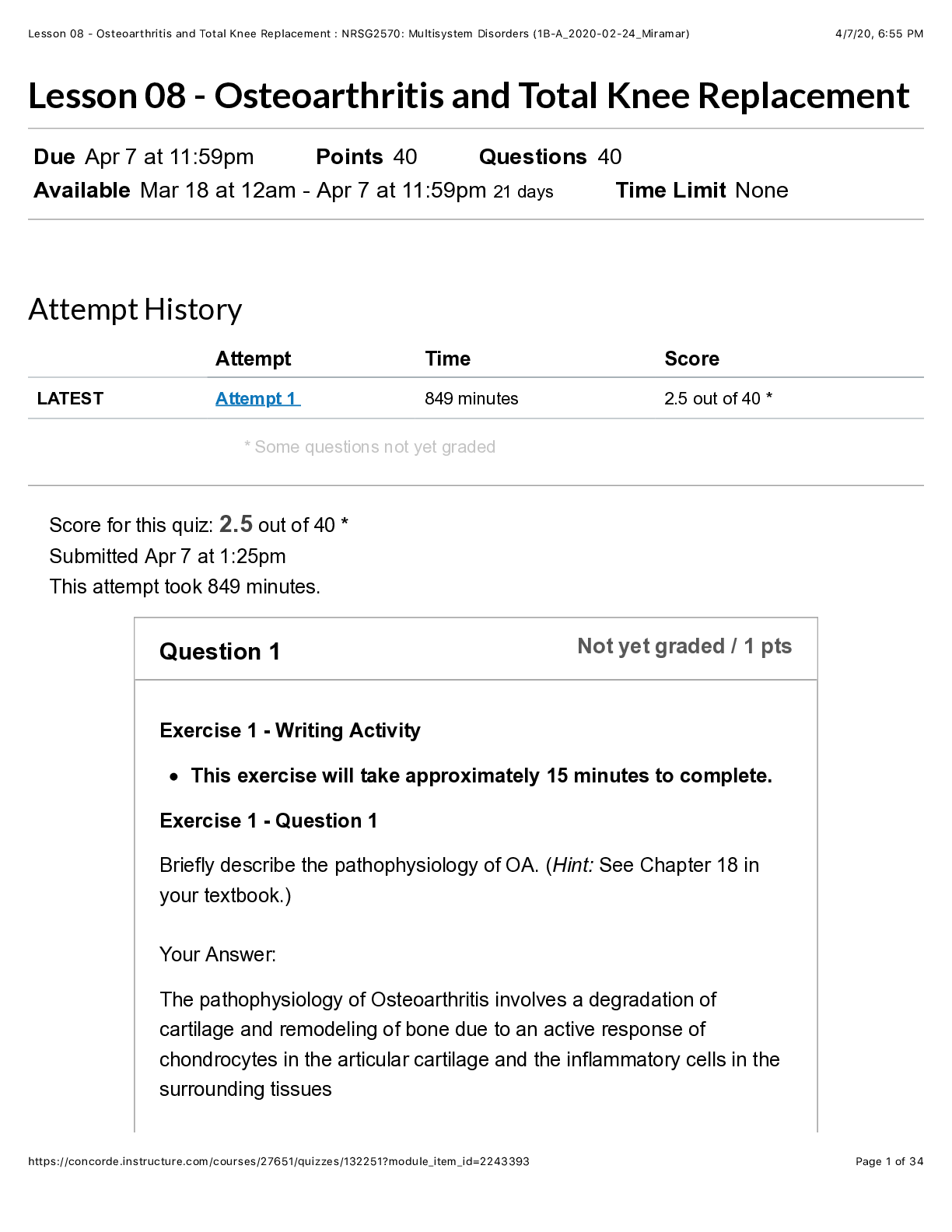Medical Studies > QUESTIONS & ANSWERS > VCE Lesson 11 - Emphysema and Pneumonia_ NRSG 2570_ Multisystem Disorders (answered) (All)
VCE Lesson 11 - Emphysema and Pneumonia_ NRSG 2570_ Multisystem Disorders (answered)
Document Content and Description Below
Question 1 Not yet graded / 1 pts Exercise 1 - Writing Activity This exercise will take approximately 20 minutes to complete. Exercise 1 - Question 1 To which categories of lung disease does ... emphysema belong? Your Answer: It is in the chronic obstructive pulmonary disease category. Chronic airflow limitation (CAL) Chronic obstructive pulmonary disease (COPD) Question 2 Not yet graded / 1 pts Exercise 1 - Question 2 Briefly describe the pathophysiology of emphysema. Your Answer: Emphysema is pathologically defined as an abnormal permanent enlargement of air spaces distal to the terminal bronchioles, accompanied by the destruction of alveolar walls and without obvious fibrosis. This process leads to reduced gas exchange, changes in airway dynamics that impair expiratory airflow, and progressive air trapping. Protease enzymes, normally present to destroy and eliminate particles and organisms inhaled during breathing, are present in higher-than-normal levels. They damage the alveoli and small airways by breaking down elastin. The alveolar sacs lose their elasticity and the small airways collapse or narrow. Some alveoli are destroyed and others become large and flabby with decreased area for effective gas exchange. An increased amount of air becomes trapped in the lungs, caused by loss of elastic recoil in the alveolar walls, overstretching and enlargement of the alveoli into air-filled spaces called bullae, and collapse of small airways (bronchioles). These changes greatly increase the work of breathing. The hyperinflated lung flattens the diaphragm, weakening the effect of the muscle. Hence the patient must use accessory muscles (neck, chest wall, and abdomen) to breath. The increased effort increases oxygen demand, making the patient work harder and resulting in an "air hunger" sensation. Gas exchange is also affected by the increased work of breathing and loss of alveolar tissue. [Show More]
Last updated: 2 years ago
Preview 1 out of 19 pages

Buy this document to get the full access instantly
Instant Download Access after purchase
Buy NowInstant download
We Accept:

Reviews( 0 )
$15.50
Can't find what you want? Try our AI powered Search
Document information
Connected school, study & course
About the document
Uploaded On
Jul 05, 2021
Number of pages
19
Written in
Additional information
This document has been written for:
Uploaded
Jul 05, 2021
Downloads
0
Views
61




